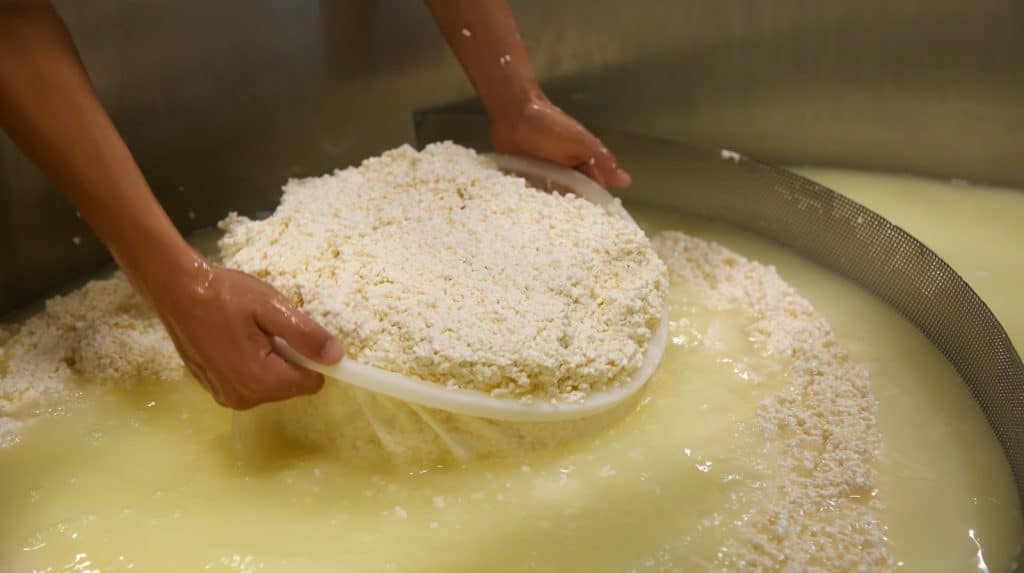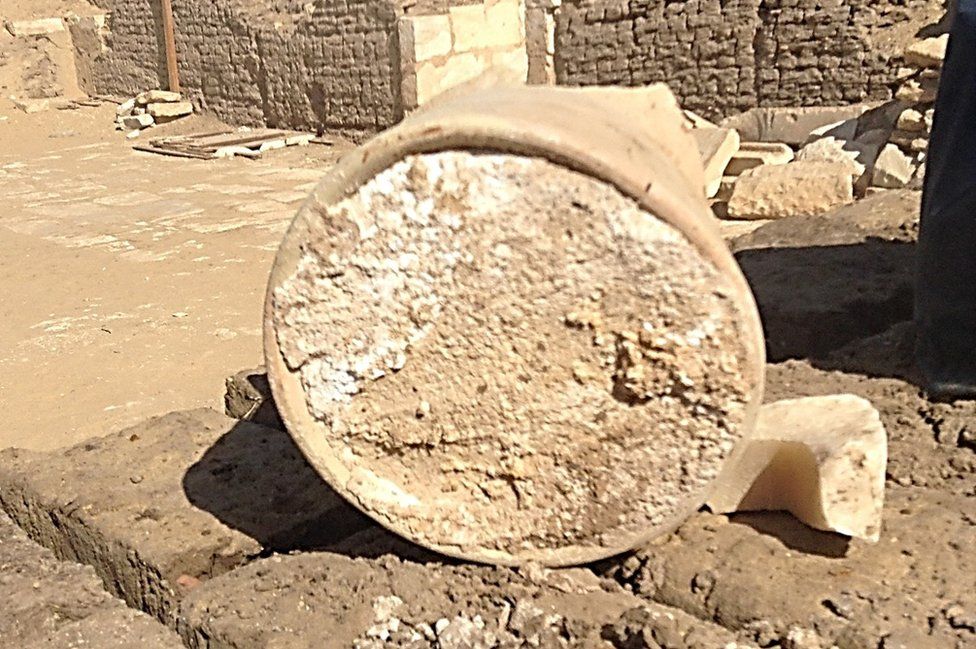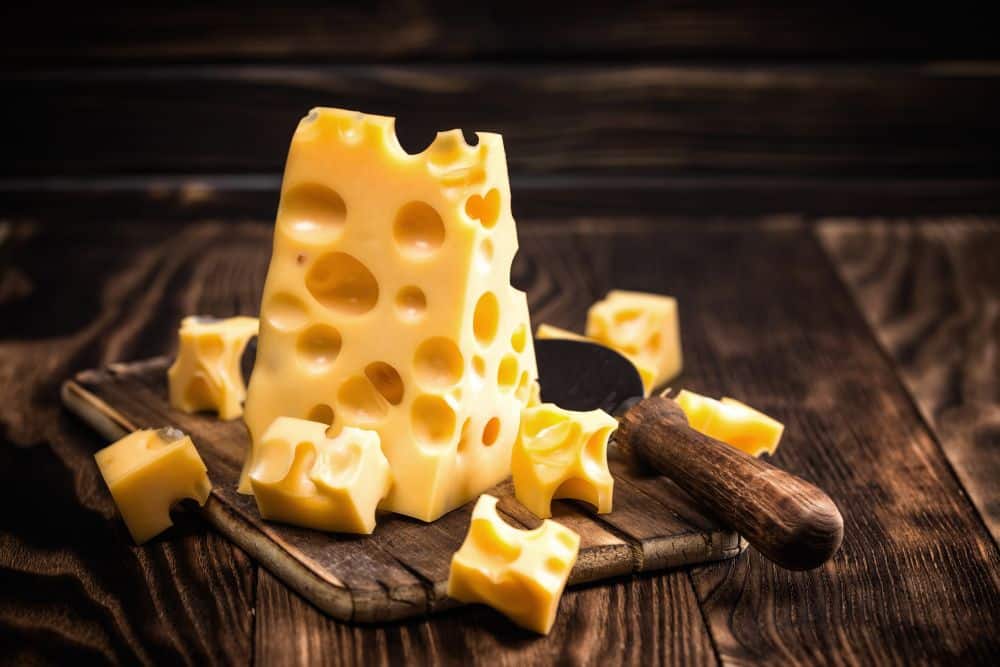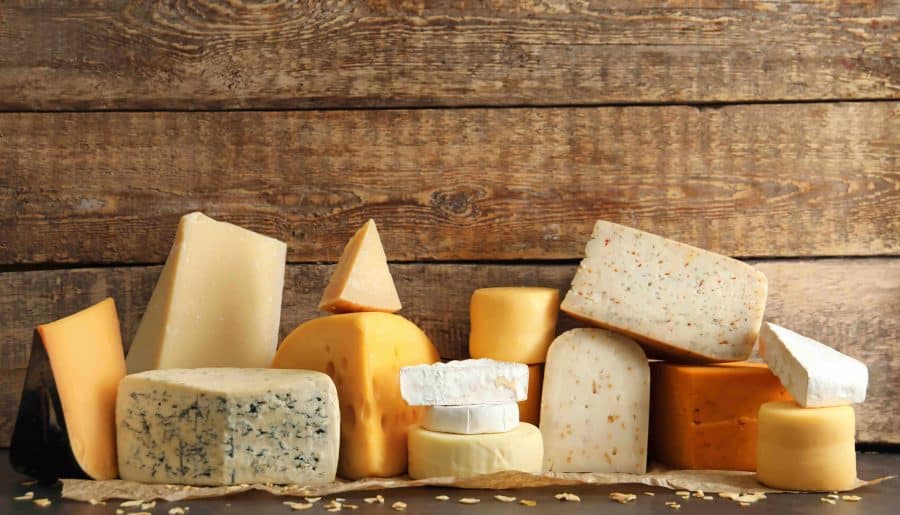Cheese: the ultimate comfort food that’s so well-loved by many people around the world.
Cheese fondue, grilled cheeses, mozzarella sticks, Mac and cheese, cheese and crackers, ham and cheese sandwiches, cheeseburgers, or pizza with melted cheese—the list just goes on. Pretty much anything you could ever imagine pairs well with this universally delicious dairy!

Did you know there are more than 1,800 different types of cheese in the world?
I know, right? That’s a lot! They are also often grouped by age, flavor, texture, production, type of milk and country or region of origin.
But have you ever wondered what cheese is made of and how it was created?
If you’re curious, keep reading to learn everything you need to know about the history of cheese.
Although the definite origin of cheese and cheesemaking is unknown, it is believed that this practice began 8 to 10,000 years ago (8000 BC). It was around the time when the domestication of milk-producing animals, such as buffalo, cows, goats, and sheep, was prevalent.
It is thought that cheese was first made by accident when people stored and transported milk in containers made from the stomachs of ruminants, such as a cow or sheep.
Inside the pouch’s lining is a rennet, which is an enzyme produced in the stomachs of ruminant mammals.
With residual rennet in the stomach lining, combined with the warm summer heat, it causes the milk stored to coagulate, separating it into solids (curds) and whey (liquid).

The curds are then turned into the earliest forms of cheese. In contrast, the whey is often drained and dried into a powder.
Moreover, evidence of cheesemaking and cheese has been found in Egyptian tomb murals that date back more than 4,000 years. Cheese remains were also found in the Egyptian tomb’s funeral meal around 2900 BC.

Also, the oldest known cheese was discovered in Saqqara necropolis in Egypt, dating back around 3200 years old.

In addition, cave paintings in Libya that date from 5000 to 6000 BC depicted the process of cheesemaking.
Another origin of cheesemaking was that it began with salting and pressing curdled milk to preserve it. Or that fruit juices were previously added to milk, resulting in milk curdling because of the fruit juice’s acid.
Although the exact origin of cheese and cheesemaking is unknown, it was during the Roman Empire that cheesemaking became widespread and a regular practice.
Cheese became highly valued as a sophisticated enterprise, satisfying the social elite’s tastes. It was also considered an art form back then, producing hundreds of cheese varieties. This led to the refinement and improvement of the cheesemaking process and techniques.
Now, if you’re a cheese enthusiast or have seen different types of cheese, you probably already noticed that some cheese, specifically Swiss cheese, has holes in them.

Ever wonder why?
First, let’s go back to how cheese is made. Cheesemaking needs these four ingredients: milk, salt, rennet or some other coagulant, and microbes. Adding bacteria (good bacteria, just to be clear) is essential to create chemical reactions to convert the milk into curds or solids.
The bacteria type and the variations in the amount influence the texture and taste of the cheese. Other factors affecting it include the temperature, salting method, and how long it was aged.
The holes you see in the Swiss cheese, also called “eyes,” are because of the added bacteria called Propionibacter shermani, which produce carbon dioxide during the process.
As the bacteria grow, they release carbon dioxide gas bubbles. When these bubbles eventually pop, these round openings or eyes are created. Imagine you’re blowing a bubble with chewing gum.
During the aging process of cheese, the precise temperature also helps create these holes.







